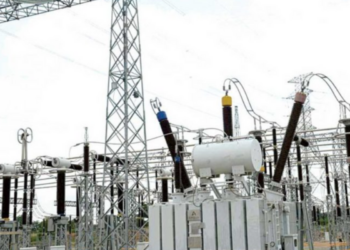Major petroleum product traders and other independent traders could enjoy some relief from rising gasoline importation costs after oil prices posted their first weekly decline in more than two months coupled with the strengthening of the naira
Oil prices fell more than 3% in the week to August 18 on concerns about slowing economic growth in China, the world’s biggest oil importer, and expectations of further US interest rate hikes. International benchmark Brent crude traded at $83.5 a barrel on Friday, down 3.1% from Monday’s closing price of $86.21 a barrel.
Investors’ concerns remain focused on the tension between slowing global growth and tight global supply, prices are likely to remain range-bound for now.
Negative data from China, the world’s second-largest crude consumer, continues to weigh on oil prices. Investors are tired of weak retail sales and domestic industrial production data, which reflect the fragility of the country’s economic recovery.
Concerns that the US Federal Reserve has not yet completed raising interest rates to combat inflation are also growing. Higher borrowing costs can impede economic growth and, therefore, reduce aggregate demand for oil. Oil benchmarks might also maintain some moderation as seasonally weak demand enters the fall
Moreover, the Naira rallied nearly 15% higher against the dollar on the parallel market for a week, trading around N/$810 in Lagos and Abuja on Sunday morning after hitting a record high of N950/$.
The appreciation of the Naira exchange rate makes gasoline cheaper even if the international crude oil price remains unchanged.
However, the increase in Petrol prices this quarter threatens to undermine some of the country’s economic reform progress and create even more political problems for the Nigerian president as the cost of living keeps ticking upward with food inflation around 27%.
The country’s oil traders have called on the federal government to address insecurity and suspend the 7.5% value-added tax, VAT on diesel, as part of measures needed to impact activities in the downstream sector.
Oil markers also urged the FG to introduce measures capable of dealing with rising food and transportation costs in the country to impact the welfare of citizens affected by the deregulation recently.
President Bola Tinubu has little time as market indicators show a tight supply. Investors have started increasing their bullish bets and net long positions hit yearly highs.
Oil supply is tighter due to production cuts by the Organization of the Petroleum Exporting Countries and its allies, known collectively as OPEC+, and demand has increased, mainly due to increased travel and improved operations. Industrial activity in the world’s largest economy has supported prices and could lead to an increase in the coming weeks

























Well, this is only one scenario amongst several. Another scenario assumes current elevated crude prices is supported by the production cuts by Opec+. For how long is this sustainable before some members break ranks and dump some more supply on the market? Especially, by marginal producers who are under pressure to repay the loans borrowed from lenders. Until all the cheap money dumped into western economies due to the Covid-19 pandemic
are mopped up and China solves it’s massive real estate crisis, world demand for crude may also trend downwards. So, that crude prices may fall is equally plausible. If that happens, product prices will fall too. Welcome to a deregulated product price regime. That’s the way, it is , wether it buys the President more time or not. Somehow, we let politics creep into what’s purely economics.